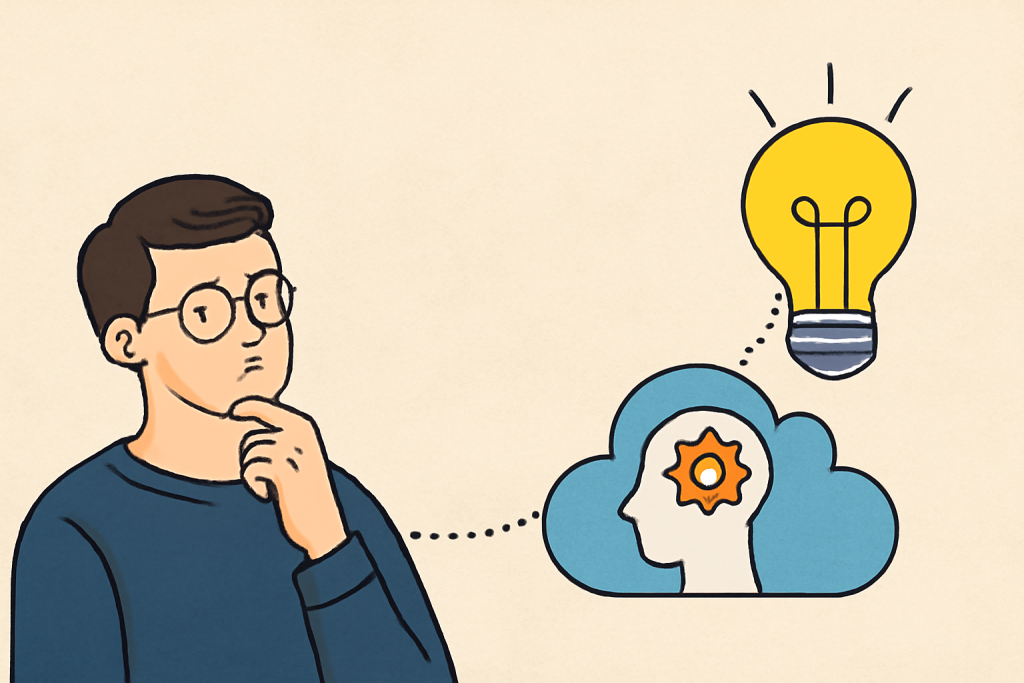In today’s rapidly changing media landscape, the line between entertainment and personal development is becoming increasingly blurred. Many are turning to movies, TV shows, books, and social media not just for amusement, but as sources of valuable life lessons. But here’s the challenge: how do we borrow the thinking tools that help us navigate the complexities of life without adopting the beliefs or ideologies that come with them?
The key to this balance lies in critical thinking—how to extract wisdom and strategies from entertainment while maintaining a firm grip on your personal values and beliefs. In this article, we’ll explore how to borrow thinking tools from entertainment without letting them override our core values. We’ll also look at current trends in the entertainment industry that promote personal development, and how you can use them without losing your sense of self.

The Rise of Personal Development in Entertainment
In recent years, entertainment platforms have been increasingly embracing themes that focus on self-improvement, mindfulness, resilience, and cognitive flexibility. From self-help books being adapted into films and series to wellness influencers on social media, the entertainment industry is no longer solely about escapism—it’s about transformation.
For example, shows like Ted Lasso have brought positive psychology and emotional intelligence into the mainstream, offering viewers not just entertainment but a blueprint for better mental health and team dynamics. Movies like The Pursuit of Happyness and The Secret have gained massive popularity by promoting the power of perseverance and the law of attraction.
However, while these entertainment pieces present valuable tools for improving our thinking, it’s important to remember that they often come with underlying philosophies or beliefs. The trick lies in borrowing the thinking tools—such as perseverance, empathy, or creative problem-solving—without necessarily adopting the accompanying worldviews.
How to Borrow Thinking Tools Without Adopting Beliefs from Entertainment
When you watch a movie or TV show that presents a new way of thinking, it can be tempting to take the entire philosophy at face value. But not every idea presented in entertainment is something you need to internalize. Here’s how you can extract thinking tools without absorbing beliefs that don’t align with your own:
1. Focus on the Tool, Not the Ideology
One of the easiest ways to borrow thinking tools without borrowing beliefs is by distinguishing between the tool itself and the ideology surrounding it. For example, The Matrix is often cited as an allegory for questioning the status quo. However, while you may not adopt the film’s philosophical underpinnings—such as the belief in deterministic systems—you can still apply the core concept of questioning assumptions and thinking critically about the world around you.
Similarly, shows like Black Mirror often present dystopian worlds driven by technology and societal control. While it may seem tempting to adopt its cynical view of technology, you can still take away the lessons on ethical decision-making, responsibility, and the consequences of technological advancements without buying into a complete worldview.
2. Apply the Thinking, but Create Your Own Narrative
When consuming entertainment, it’s essential to take the tools it provides and fit them into your own life narrative. For example, you might resonate with the problem-solving methods portrayed in Sherlock Holmes or the empathetic leadership style in Ted Lasso, but that doesn’t mean you need to take on the exact same beliefs or values.
Personal development is about customizing the tools you learn. If a motivational speech in a movie inspired you to take action, you don’t need to agree with the entire philosophy of the speaker to benefit from the advice. Simply extract the strategy (e.g., setting specific, actionable goals) and integrate it into your existing framework of beliefs.
3. Maintain Awareness of Bias and Representation
Another key strategy when borrowing thinking tools from entertainment is to be mindful of how bias and representation influence the tools being presented. Entertainment media is inherently a product of the perspectives and worldviews of its creators, and while the thinking tools presented may seem universally applicable, they may still be shaped by these biases.
For instance, consider how some movies portray success in a way that often aligns with Western ideals of individualism and material achievement. These are valuable perspectives, but they’re not the only ones. If you don’t align with these beliefs, feel free to adapt the tools to suit your values. You don’t have to subscribe to a worldview to use tools like discipline, creativity, and resilience.
4. Keep Your Core Beliefs Intact
Entertainment often presents tools that encourage personal growth, but these tools can sometimes come with underlying beliefs that may not align with your values. For example, The Secret promotes the law of attraction, a philosophy that suggests our thoughts directly influence our reality. While this thinking tool may help you focus on positivity and set goals, it’s essential to critically assess whether this philosophy works within your own value system.
In this case, you can borrow the thinking tool—visualization and positive thinking—without necessarily believing that the universe is actively conspiring to help you. By doing so, you maintain your beliefs while still using the thinking tools for practical benefits.
Extract Valuable Thinking Tools While Maintaining Your Personal Beliefs
As entertainment continues to evolve, there are several emerging trends that foster personal growth and mental resilience:
1. Mindfulness and Mental Health Representation
The representation of mental health in popular media is on the rise. From 13 Reasons Why to BoJack Horseman, mental health struggles are being presented in a way that resonates with a wide audience. These shows and movies often highlight the complexities of mental health, resilience, and the importance of seeking help.
While the beliefs surrounding mental health issues presented may not be universally accepted, the thinking tools—such as emotional intelligence, seeking help, and being mindful of our mental health—are invaluable for anyone looking to grow personally.
2. Self-Help Content in Podcasts and Influencer Spaces
Another growing trend is the rise of podcasts and influencers who focus on self-improvement, cognitive flexibility, and mindfulness. Personal development podcasts like The Tim Ferriss Show and The Tony Robbins Podcast are shaping the way people approach success and growth. These platforms offer a wealth of thinking tools—such as time management strategies, mental resilience, and personal discipline—without forcing listeners to adopt any particular belief system.
By engaging with these podcasts, you can learn frameworks and strategies for improving productivity, well-being, and creativity, without necessarily absorbing the host’s worldview.
3. Interactive Storytelling and Gamification
With the rise of interactive media, such as video games and interactive storytelling platforms, entertainment is shifting towards more participatory experiences. Games like The Last of Us and Life is Strange offer players opportunities to make decisions and navigate moral dilemmas, offering tools for problem-solving, empathy, and critical thinking.
The key is to engage with these games on a cognitive level, borrowing the strategies they offer without internalizing the deeper, often complex themes or beliefs they present. For example, the strategic decision-making in The Witcher 3 can teach you about cause-and-effect thinking, while the empathy developed from understanding characters’ backstories can help you navigate real-world relationships.
Conclusion
In the age of limitless entertainment and content, the tools for thinking critically, solving problems, and enhancing personal growth are more accessible than ever. From movies to video games, the entertainment industry offers a treasure trove of strategies that can help us improve our mental flexibility and resilience. The key is to borrow these tools while carefully examining the underlying beliefs that may come with them.
By focusing on the thinking tools themselves—such as problem-solving, critical thinking, emotional intelligence, and perseverance—you can enhance your personal growth without having to adopt ideologies that may not align with your values. Remember, it’s all about customizing the tools to fit your personal narrative and worldview.
Reference
- The Miniature Guide to Critical Thinking Concepts and Tools. Foundation for Critical Thinking. –https://www.criticalthinking.org/
- The Influence of Media on Society and Culture. Journal of Media Psychology- https://journals.sagepub.com/
- The Power of Your Subconscious Mind: Applying the Power of Thought in Personal Development.- https://www.hayhouse.com/









